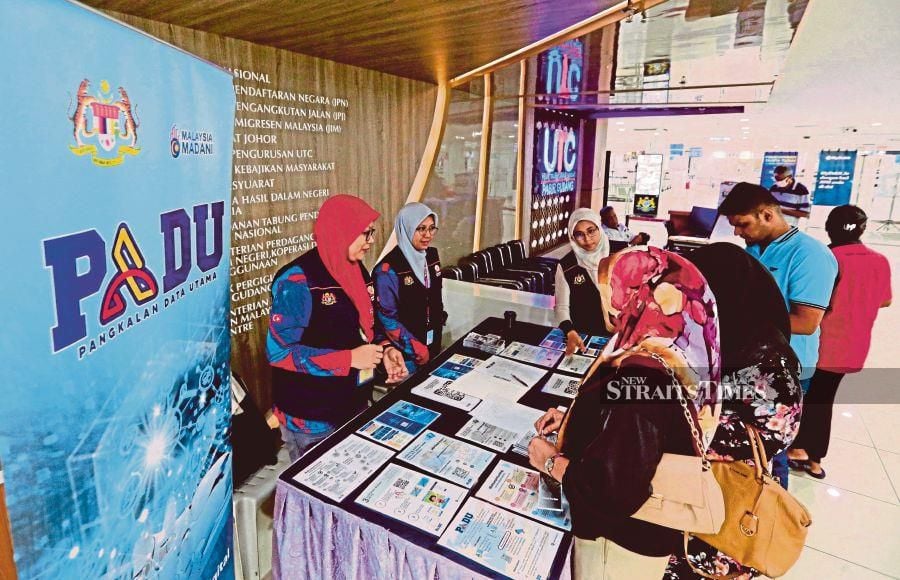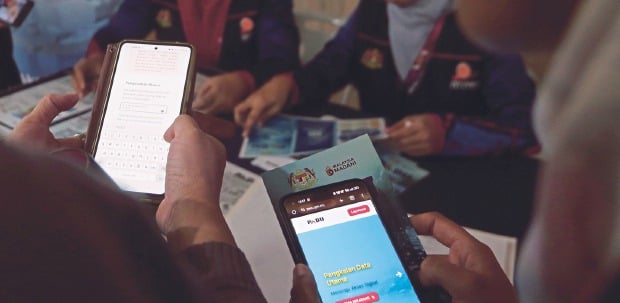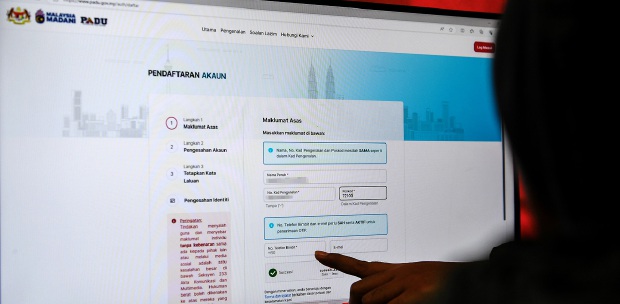Congratulations on the launch of the Central Database Hub (PADU), aimed at enhancing the quality and effectiveness of government service delivery to the people.
A much awaited long-term goal.
Specifically, the primary objective of PADU at present, or its current "user case," is to enable the government to deliver social assistance more efficiently, primarily to ensure subsidies reach their targets.
For 2023, subsidies and social assistance are estimated to reach RM67 billion, 16.5 per cent of the total budget allocation, nearly matching development expenditure!
Additionally, targeted subsidies are hoped to alleviate the widening fiscal deficit, with the perception that there is leakage due to blanket, non-targeted subsidy allocation methods.
Indeed, data is the "oil" in today's digital world. More accurate decisions depend on detailed, real-time data.
Detailed granular and real-time data enables micro-targeting and precise public policy formulation.
Eminent economist Professor Tan Sri Dr. Noor Azlan Ghazali uses the following example in relation to PADU social assistance packages.
For instance Ahmad, a taxi driver, whose wife sells cakes, and whose three children, including one university student, reside in Kuala Lumpur, would differ from those for Abdul, a fisherman, whose wife is elderly, and whose three school-aged children live in Dungun.
Each eligible recipient would receive social assistance tailored to their specific needs. This is known as micro-targeting.
Any changes in Ahmad's and Abdul's family socio-economic information could alter the assistance package they receive. Perhaps one day, both of them may no longer qualify for government assistance, with a graduated exit or perhaps remain eligible until the end of their lives, albeit with varying amounts.
The term "real-time" means that the relevant information is captured not last year, not last month, not yesterday, not this morning, but at this very moment. PADU is characterised as "near real-time," possibly limited to last month or six months ago, depending on the existence, speed, and frequency of data capture. Generally speaking, social data does not change frequently, so there is no need for real-time data for PADU.
Government policy-making must be evidence-based, supported by quality data.
However, to what extent is detailed and real-time data necessary for effective policy formulation?
Is a near-real-time data repository involving 32 million Malaysians like PADU necessary to address social assistance leakage problems?
Indeed, economists dream of having access to detailed and real-time data. With the latest data analytics capabilities, various detailed information about the issues at hand aids in the implementation and formulation of public policies.
The development of PADU is seen as meeting some of the expectations behind its establishment.
This detailed and real-time data repository also has the potential for various other uses in the future.
Collecting such data is not as straightforward as one might think.
At the government level alone, there are 400+ data repositories under various federal, state, and local government agencies.
Each one is developed for specific purposes, based on their respective portfolios.
Some are subject to specific acts that restrict data sharing between agencies. Each one has different definitions/interpretations and methodologies.
Some databases rely solely on self-reported data, documented and verified by various categories of verifiers (village heads, representatives, government officials, etc.).
Some require verification visits from specific agencies.
The constraint of data sharing among these hundreds of public data repositories is a known issue.
The National Data Sharing Policy was announced in wake of the Covid-19 pandemic.
Is this data sharing "problem" a solution to the "problem" of social assistance leakage? Are we actually solving one problem by addressing another? Binding one 'user case' with another? Could it be a case of two issues, one solution?
The process of integrating data repositories, system development, registration, updating, and data verification in PADU is a lengthy process.
It takes time and it
cannot be rushed.
As the saying goes, haste makes waste, in other words, rapid does not necessarily mean good.
It needs to be carefully tested, and ensured for its capability and resilience.
Managing public institutions and issues is not the same as managing private institutions and issues.
It has to be remembered that data sharing among government agencies must be based on relevant acts and regulations.
We must respect the sanctity of personal data collected.
This matter needs to be scrutinised to avoid any violations of personal data protection.
Eminent economist Professor Tan Sri Dr. Noor Azlan Ghazal is of the opinion, that PADU should be made into a separate initiative.
Specifically, to integrate the 400+ public data repositories.
Enhancing data sharing among agencies improves service efficiency and quality, in addition to beefing up the capacity for public policy formulation.
As a government data and knowledge centre, it should continue indefinitely and not be limited to the spirit and leadership of the current administration in Putrajaya.
The 'user case', targeting subsidies to avoid burdensome fiscal positions, can be resolved without tying it to the problem of data sharing and integrating public data repositories.
They ought to be separated. Professor Noor Azlan believes the social assistance database at the Ministry of Finance, developed over the past few years, can serve as a basis for solving this leakage problem.
Using a metaphor to illustrate this scenario, let's not buy a new house just because the light bulb is broken!
Playing with data can indeed be exciting.
Sometimes, it's so captivating that the original goal of data collection gets sidelined in the discussions.
Some may even get lost in the vast and deep pool of data, losing sight of the original purpose of data collection.
In the context of public issues, it's crucial for us to first understand the problems we aim to address.
We need to assess the value of existing data repositories in the Ministry of Finance, understanding both their strengths and weaknesses.
Identifying obstacles and determining any additional information required is essential.
Starting from there, we must remained focus.
Our 'user case' is the leakage of social assistance, not data sharing between agencies, which is limited.
Let's continue the development of PADU as a public data initiative.
It syncs well with the digital era.
Enhance public confidence and strengthen the capability and security of PADU.
Sufficient time is required for this to materialise. Remember that Rome wasn't built in a day!
Let's align PADU with GovTech and MyDID from now on.
Hopefully we will not end up dealing with fragmented digital systems that operate in silos and singularly don't share data once again.
To conclude, the British philosopher Arnold J. Toynbee is reported to have said, civilisation is a movement and not a condition, a voyage and not a harbour. This certainly holds true in the case of PADU.
*The writer currently serves as a Senior Consultant at Global Asia Consulting (GAC). The viewpoints articulated are solely those of the author.





